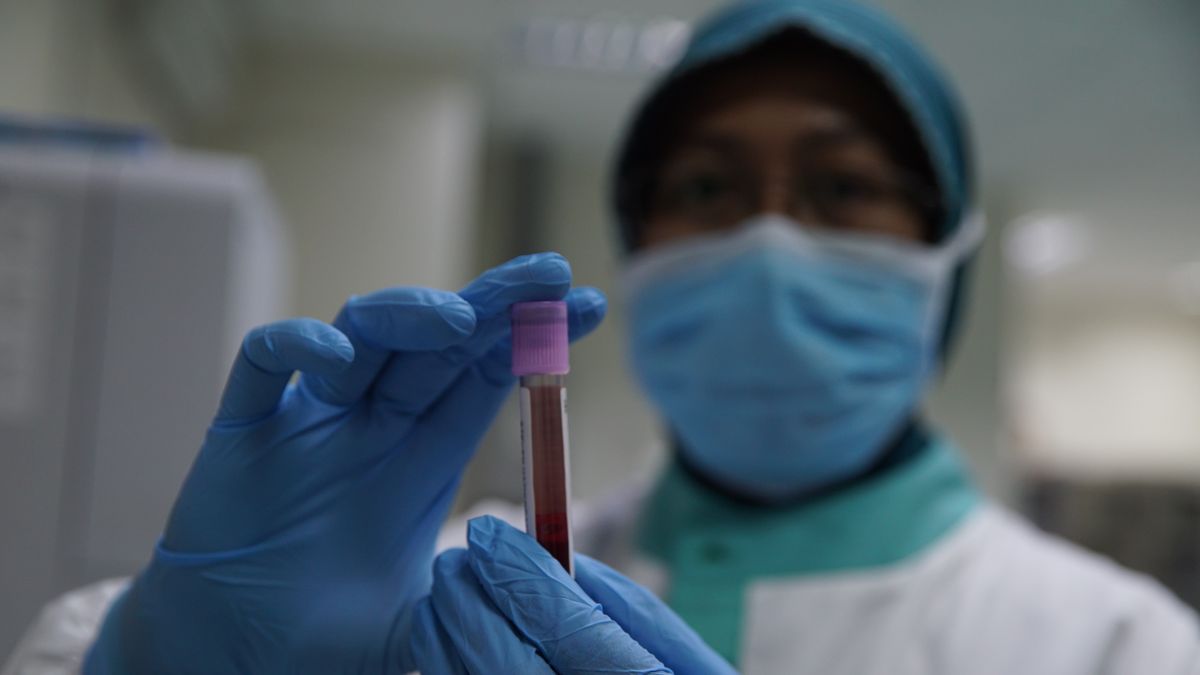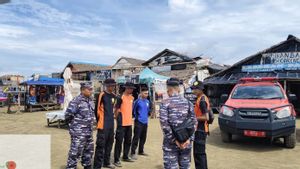JAKARTA - As has happened in other countries, the number of COVID-19 cases in Indonesia has increased again due to the spread of the Omicron variant, both those that transmit overseas travelers (PPLN) and local transmissions.
As of January 15, 2022, there have been 748 cases of Omicron found, of which 569 cases were PPLN, 155 cases were local transmission, and 24 cases were still being investigated for epidemiological conditions. Then, there are 1,800 cases which are probable Omicron.
The government has predicted that the peak of the wave of Omicron cases in the country will occur in mid-February to early March.
Not wanting the pandemic crisis due to the surge in the Delta variant to repeat itself, the government decided to shorten the implementation of the extension of the PPKM level assessment to once a week. Previously, PPKM was extended every two weeks.
This was decided in a limited meeting (tatas) on the evaluation of PPKM chaired by the President of the Republic of Indonesia Joko Widodo (Jokowi) on Sunday, January 16.
"The government will again carry out the PPKM assessment which is evaluated every week and remove the two-week assessment, solely to follow the development of the Omicron case which is predicted to increase very quickly," said Coordinating Minister for Maritime Affairs and Investment Luhut Binsar Pandjaitan, Sunday, January 16.
Luhut explained that currently the case of Omicron's local transmission is from the trend of cases of foreign travellers. Cases are dominated by the Java and Bali regions, especially the DKI Jakarta Province.
"The increase in cases in Java-Bali was also seen in the provinces of West Java and Banten, this was driven by their territory being included in the Jabodetabek agglomeration section," said Luhut.
The government also predicts the increase in cases has the potential to rise even higher in DKI Jakarta Province if we are not careful.
Meanwhile, for other areas in Java and Bali, cases in other provinces outside Jakarta, West Java and Banten are relatively well maintained, but the spread of cases is also predicted to spread faster due to high mobility.
Acceleration of vaccination to tightening optionsLuhut said the government had prepared various mitigation measures to stem the deeper severity caused by the Omicron variant.
The government, said Luhut, will accelerate booster vaccines for all people, especially those living in the Greater Jakarta area and enforce more massive health protocols to curb the spread of cases.
"Entrance requirements to public places will be tightened, only those who have been vaccinated twice can move in public places," he said.
In addition, Luhut continued, the government will also continue to encourage the second dose of vaccination for the general public and the elderly, especially in provinces, regencies and cities which have not yet reached 70 percent.
If needed, tightening mobility will also be an advanced option. Although there has been no tightening decision like the Emergency PPKM that has been done before, Luhut appealed to the community to start reducing their mobility.
"There is nothing wrong with us starting to limit and restrain mobility outside the house and unnecessary gathering activities," he said.
Likewise with office activities. Luhut suggested that the company re-implement work from home (WFH) if this option can still maintain productivity levels.
In addition, Luhut said that Jokowi also asked that all of us be able to limit ourselves from traveling abroad.
"The president also asked that we, the whole community, can limit ourselves from traveling abroad, only if it is absolutely necessary to go abroad. Government officials have even been banned from traveling abroad for the next three weeks," he concluded.
The English, Chinese, Japanese, Arabic, and French versions are automatically generated by the AI. So there may still be inaccuracies in translating, please always see Indonesian as our main language. (system supported by DigitalSiber.id)









